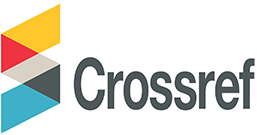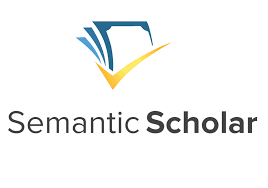Individual Differences in Students' Learning Potential
DOI:
https://doi.org/10.69760/aghel.02500131Keywords:
personality, education, objective assessment, method, teaching processAbstract
The development of a well-rounded individual and the improvement of the efficiency of the educational process are the two fundamental goals of education in the modern day. It is necessary for us to cultivate new individuals who are capable of advancing our homeland, protecting our independence, enhancing its scientific, economic, military, and cultural capabilities, encouraging independent thought, mastering educational disciplines, objectively evaluating life events, and navigating a variety of challenges in order to accomplish this goal. Because of this, significant changes need to be made to the educational system, as well as the revolutionary implementation of cutting-edge pedagogical approaches that are derived from international educational practices. As a consequence of this, reforms are currently being done in order to incorporate the educational system of Azerbaijan through the framework of international education.
References
Alisoy, H., Mammadova, I., Asadova, B., Ismayilli, F., & Aliyeva, T. (2024). The future of language education: Integrating smartphones into the curriculum. Edelweiss Applied Science and Technology, 8(6), 4539-4556.
Brevik, L. M., Gunnulfsen, A. E., & Renzulli, J. S. (2018). Student teachers’ practice and experience with differentiated instruction for students with higher learning potential. Teaching and Teacher Education, 71, 34-45.
D’Lima, G. M., Winsler, A., & Kitsantas, A. (2014). Ethnic and gender differences in first-year college students’ goal orientation, self-efficacy, and extrinsic and intrinsic motivation. The Journal of Educational Research, 107(5), 341-356.
Day, A. L., & Livingstone, H. A. (2003). Gender differences in perceptions of stressors and utilization of social support among university students. Canadian Journal of Behavioural Science/Revue canadienne des sciences du comportement, 35(2), 73.
Hasanzade, T. (2024). Bilingual Education Models: Comparative Analysis of Efficacy and Outcomes. Global Spectrum of Research and Humanities , 1(1), 83-99. https://doi.org/10.69760/gsrh.0101202408
Ismayilli, T. Developing Students Verbal Communication Skills and Speech Etiquette in English Language Teaching.
Jurik, V., Gröschner, A., & Seidel, T. (2014). Predicting students' cognitive learning activity and intrinsic learning motivation: How powerful are teacher statements, student profiles, and gender?. Learning and individual differences, 32, 132-139.
Kubat, U. (2018). Identifying the individual differences among students during learning and teaching process by science teachers. International Journal of Research in Education and Science, 4(1), 30-38.
Mammadova, I. (2024). The Role of Proverbs in Language Learning: A Cognitive and Cultural Perspective. EuroGlobal Journal of Linguistics and Language Education, 1(1), 40-45. https://doi.org/10.69760/8qj8tr41
Mirzayev, E. (2024). Enhancing Pronunciation Skills through the Eclectic Method in University-Level English Teaching . EuroGlobal Journal of Linguistics and Language Education, 1(2), 139-148. https://doi.org/10.69760/egjlle.2024.046
Pashayeva, S. (2024). Evaluating the Oral Method in Foreign Language Teaching: Historical Perspectives, Modern Applications, and Pedagogical Insight. EuroGlobal Journal of Linguistics and Language Education, 1(2), 118-124. https://doi.org/10.69760/ejlle/953zrg28
Recker, M. M., & Pirolli, P. (1995). Modeling individual differences in students' learning strategies. The Journal of the Learning Sciences, 4(1), 1-38.
Safarova, L. (2024). Comparative Analysis of Azerbaijani and English Phonetic Systems. EuroGlobal Journal of Linguistics and Language Education, 1(2), 17-25. https://doi.org/10.69760/73vjgs24
Sabah, N. M. (2020). Motivation factors and barriers to the continuous use of blended learning approach using Moodle: students' perceptions and individual differences. Behaviour & Information Technology, 39(8), 875-898.
Sadiqzade, Z. (2025). Strengthening Language Skills Through Active Classroom Interaction. Global Spectrum of Research and Humanities , 2(1), 28-33. https://doi.org/10.69760/gsrh.01012025003
Skehan, P. (1991). Individual differences in second language learning. Studies in second language acquisition, 13(2), 275-298.
Downloads
Published
Issue
Section
License
Copyright (c) 2025 Acta Globalis Humanitatis et Linguarum

This work is licensed under a Creative Commons Attribution-NonCommercial 4.0 International License.







